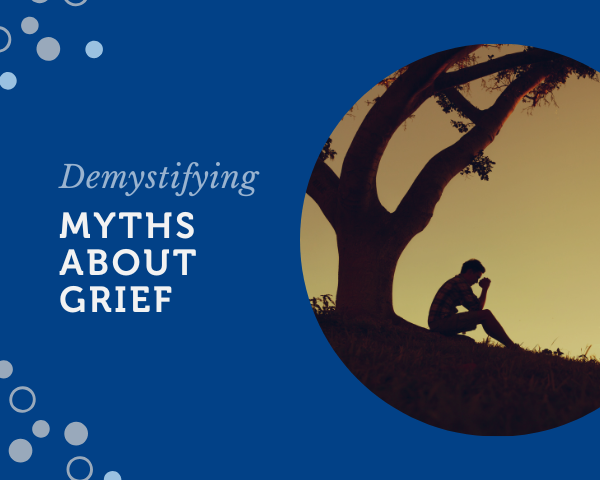Anticipatory Grief: Navigating the Path of Emotional Preparation
Grief is not always linear as we see it described, and depending on the circumstances its stages don’t always begin with death. Anticipatory grief is a unique and complex emotional experience that occurs when we are faced with the impending loss of a loved one. At Towners, we understand the profound impact anticipatory grief can have on individuals and families, and believe in providing understanding and guidance on the best ways to cope with this challenging journey.


Anticipatory grief is the emotional response that takes place before an expected loss. This typically refers to when a loved one has received a terminal diagnosis or is in a progressive decline of health. Unlike the grief that follows an actual loss, anticipatory grief is simply our minds mentally and emotionally preparing themselves for what we expect is to come. It is a way for us to gradually cope with the idea of life without our loved one, as hard a thought as that may be, and to begin the process of adjusting to the changes that lie ahead.
Anticipatory grief can have a significant impact on individuals and families. It is a complex mix of emotions that can include low mood, anxiety, fear, anger, guilt, and even relief. It’s normal to experience a sense of helplessness to watch a loved one struggle with the uncertainty of what the future holds. There can be a real conflict of feelings at this time, between wanting to see a loved one suffer while cherishing every moment together. While anticipatory grief can be an overwhelming experience, there are strategies that are recognised as helpful in navigating this process:
Acknowledging and Validating Emotions
Recognising that the emotions you are feeling are normal and valid is always the best first step with any grief response. Allow yourself to grieve and express your emotions openly, whether it's through taking time to journal and externalise your thoughts, talking to a trusted friend over a cup of tea, or seeking professional support.
Seeking Support
Seeking outside help is always something we emphasise as an option to anyone going through this process. Sharing your feelings and concerns with others who understand can provide comfort and relief during this challenging time. For some, friends and family can be a great source of support, but for many the complexity of their emotions or the nature of the loss mean that professional support and counselling are a more helpful option. Speaking to a trained counsellor or support worker can bring more clarity to the process, as they can guide you through your feelings and the most well-recognised strategies for managing your grief day-to-day.
Practice Self-Care
Take care of your physical, emotional, and mental well-being. Engage in activities that bring you joy, practice relaxation techniques, maintain a healthy lifestyle, and prioritize self-compassion. It's vital to nurture yourself during this difficult period, as well as being there for others.

Communicate Openly
Engage in open and honest conversations with your loved one about their wishes, end-of-life decisions, and any unresolved matters. Having these conversations and asking them their wishes for when they are gone can alleviate some of the uncertainties, and ensure that their wishes are honoured. Make the most of the time you have with your loved one by creating meaningful memories and engaging in activities that hold significance for both of you. These shared experiences can provide comfort and a sense of connection during the grieving process.
Anticipatory grief is a complex and individual experience that requires patience, understanding, and self-compassion for others and ourselves. By acknowledging and validating the emotions, seeking support, practising self-care, and engaging in open communication, it becomes easier to navigate the path of anticipatory grief. At Towners we aim to create an environment of understanding and compassion at every step of our journey together, ensuring that you and your family feel supported during this emotional time.




